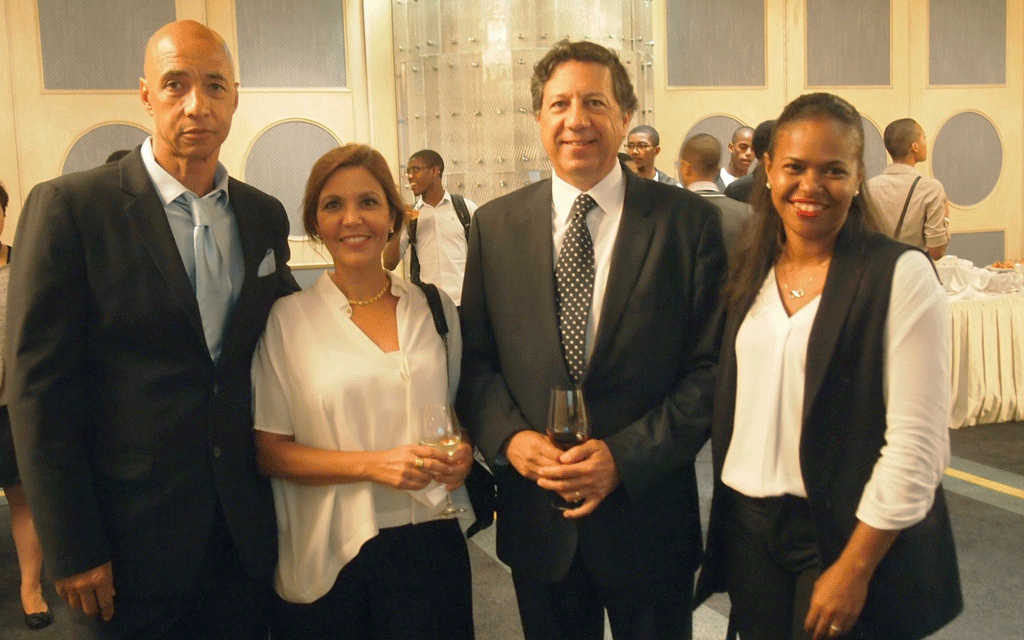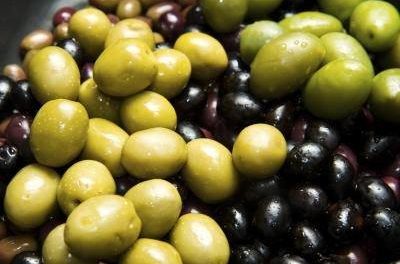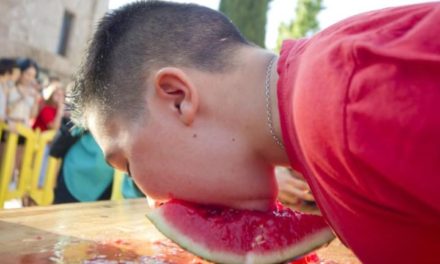Violante Joao Sousa, 49, and her mother, sat with me in the lobby of the Macau Landmark – a luxury shopping center and office building in the middle of Macau’s finance district. Her skin was one of the shades of light brown and her eyes were slightly pinched on the outside, a feature common to folk from Santo Antao, where her father had been from. Her mother had hailed from another northern island, Sao Vicente.
Cabo-Verdeanos from the northern islands are often referred to as Sanpajudos – while in the south the name is commonly Badius. Normally the differences would be easy to spot because the accents of the North and South are markedly different. With Violante though, I wouldn’t have known unless she told me because she only spoke Portuguese.
She had agreed to talk to me and as we walked to find a quiet section of the lobby, my first impression of her was that of a reserved woman who carried herself with humble elegance – but might just as easily breathe a little fire if you got on her bad side. Her hair was tied back and she had worn her finest jewelry. This had been a moment she was looking forward to and she wanted to make a good first impression, but don’t be confused, it was not for me.
A ballroom had been prepared for the Cabo-Verdeano community of Macau to meet newly elected Cabo-Verdeano Prime Minister, Ullises Coreia e Silva – who was in Macau with a Cabo-Verdeano delegation attending The Forum for Economic and Trade Co-operation between China and Portuguese-speaking Countries. Those with lower lung capacities just call it the ‘Macau Forum’.
As we sat a duo of Cabo-Verdeano young men came in and saw us. They couldn’t have been more than 20 years old. A moment of recognition occurred where we looked at them and them at us. One of them tepidly asking, ‘’Cabo-Verdeano?” to which Violante and I replied, ‘’yes’’ and greeted them. I knew we were all there to meet the Prime Minister but in my mind I entertained a thought that each Cabo-Verdeano was born with an internal radar system for finding other Cabo-Verdeanos .
The young men were fresh to Macau. They’re to study Casino Management and Gaming ahead of the massive hotel and casino development planned for the Gamboa coast in Praia by Honorary Consul General for Cape Verde, David Chow. They came over to us with the expectant face of youth in a different land and I found out that Jeremais de Jesus; from Tarrafal in northern Santiago, and Jordanne Brazon; from Eugenio Lima in Praia had only been in Macau for two months.
A bustling Asian city is as about as far from Cabo-Verde as you could possibly get. At first glance the duo appeared relaxed. They could have been walking through the Plato district of Praia to meet some friends. It is said that if you find yourself suddenly immersed into a new culture, sooner or later survival instincts kick in and you either join or reject that culture. When I looked back on having gone through culture shock myself years ago, I could see now that it happened in phases; bewilderment, anxiety, discovery, acceptance, change and finally joy. With the only major casualty along the way being the world view you had going in.

Jeremais and Jordane were still in the wild-eyed first phase, everything was new and different and filters had yet to develop. Violante, however, had lived in Macau for 23 years, she sat passively smiling while the young men excitedly told us their thoughts on Macau – as if she knew something they didn’t, something that they couldn’t know until they too passed the phases. My gut said that she did, maybe even something I didn’t know because, as cliché as it sounds, Violante radiated joy.
Violante was born in Sao Vicente and came to Macau in 1993. Her journey had come by way Angola where she had been living since childhood. When I asked why she left Angola, her expression suddenly changed and her eyes glinted with memories gone but not forgotten. Her response was terse, this wasn’t a subject she talked about often. ‘’Because of the war,’’ she replied, smiling gently and adjusting the hem on her dress. Signaling to me that the subject was uncomfortable so I didn’t press further.
I didn’t need to. From 1975 to 2002, Angola had been locked in a civil war between the MPLA and UNITA political factions with a lot of the fighting happening in the villages and townships outside the major cities.
In 1993, Violante was a single mother to a five year-old-son when fighting had broken out in her township. Listening to her I suddenly saw how the story of migration rarely changes. That it often comes down to a choice between life and death with the only variable being the speed. Cabo Verde’s history is punctuated with a series of droughts and famines that have sporadically wreaked havoc on the islands, sometimes killing off 70% of the population. In that context it is easy to understand why the first generation of Cabo-Verdeano immigrants to the American east coast were so compelled to leave. For many of those first immigrants, the accounts of the 19th century famines could probably still be found at the mouths of grandparents who remember having to choose between leaving Cabo Verde and learning to eat rocks.
Violante’s choice was just as dire, either risk becoming a victim of war or leave and face uncertainty. Having left school at 16, her options were limited though to look at her today you would never have guessed it. Her composed demeanor made it hard to imagine her as a 26 year-old young woman about to make a major life decision but luckily she wasn’t making it alone. Violante had a sister who was living in Macau at the time so she came and never looked back, her son is now 27. Today he is her major concern. Violante says her son lists from job to job without much focus on starting a career.
‘’He needs more direction’’ she told me. The way she spoke about it gave me the impression that her son’s listlessness was a worry but not something she couldn’t handle, just something she hadn’t handled yet.
For more than 20 years she has earned a modest living working as a confectionery baker in a hospital canteen. A position secured for her by another long time Cabo-Verdeano resident of Macau – Dr. Mario Evora who was the Head of the Cardiology Department in the Hospital Center S. Januario. I had met Dr. Evora and his brother Humberto, also a doctor, in the 90’s. The story of why they were in Macau goes back to the 1940’s when their grandfather António Magalhães Coutinho, took a government position as the Macau Postmaster General, leaving a daughter behind in Cabo Verde who had recently married a general in the Portuguese army.
Dr. Evora’s father was reluctant to leave Cabo-Verde but the persistent Coutinho would eventually convince his daughter and son-in-law to move to Macau for a period of three to four years. They ended up staying the rest of their lives.
While Violante’s journey to Macau hearkens back to the days of New York’s Ellis Island when immigrants to the US would be arriving on the heels of social upheaval in their native lands – seeking to etch out a living on the fringes of the American working class; Evora’s journey to Macau is surprisingly the more commonly found type of path but there are others.
While the Cabo-Verdeano community in the US numbers in the 10’s of thousands and goes back at least three generations to the whaling ships of the east coast, the Cabo-Verdeano community in Macau numbers less than 100 people and saw its biggest increase during the 90’s when many had come for education. For better or worse graduating Cabo-Verdeano students have traditionally been restricted to only Portuguese-speaking Universities for higher level study.
The 90’s saw Macau opening up as another option besides the traditional choices of Portugal and Brazil. Many of the Cabo-Verdeano students who came to Macau to study in the 90’s not only have put down roots but have excelled in their chosen industries.
Being from one of the world’s smallest countries tends to put a chip on one’s shoulder. That to be better than the next man often means being ten times better. Cabo-Verdeanos like to be good at what they do and the Cabo-Verdeanos of Macau are no different. Of the ten most notable doctors in Macau, three are Cabo-Verdeano. Many other doctors are also in the community- along with lawyers, teachers and government employees. Violante lives in a community filled with academic and occupational excellence. It wasn’t clear if that paradigm had affected her but I didn’t get the impression that Violante was the type of person given to questioning her own self-esteem.
As we entered the ballroom and the activities got under way, the room suddenly filled with more students. Apparently the Chinese government had offered Cabo Verde a total of 27 spaces for students to come to Macau and study gaming. The Prime Minister came in and we met him but Violante had long since disappeared into the crowd. As I sat and talked with the other members of this community, I was instantly transported back to Cabo Verde. Only a cursory glance outside reminded me that I was in China.
Fabio Monteiro (no relation), an IT specialist who came to Macau in 2011, and I were in a discussion about a Nikola Tesla invention. Later, Adelino Correia, a lawyer at C & C Lawyers told me a joke that only other tellers of bad dad jokes (like myself) would love.
By the time I left, it was clear that the Cabo-Verdeanos of Macau are a growing community with a clear sense of identity. It is interesting that the growth of this community is happening as Macau itself is going through a period of re-defining itself. Macau had been a colony of Portugal until 1999. Its population is currently around 700,000 and the demographical shift underway is having an effect on the Cabo-Verdeano community.
During Portuguese rule, the Portuguese themselves were in the majority in Macau and Cabo-Verdeanos were often counted in with them. This brought with it privilege and in some cases power. This has now changed as many Portuguese returned to Portugal after the handover. The ones who remained are now the minority and even more so, are the Cabo-Verdeanos with them. Another shift is in the Chinese population – many of the traditionally Macanese-Chinese have also left and emigrated elsewhere. As the traditionally Macanese-Chinese left, the mainland Chinese started moving in to everyday life and to positions of power. The attitude of the mainland Chinese government has often been described as nationalistic which means the sympathetic ears Cabo-Verdeanos once enjoyed in Macau may be slowly fading.
Despite this Violante says that she has never experienced racism from the Macanese-Chinese – that in all her time in Macau she has never encountered difficulties because of her race. But incidents do happen she says. Natural, when two vastly different cultures find themselves living in the same area, tensions can arise. Whereas the Chinese are a largely reserved people, any Cabo-Verdeano will tell you that a Cabo-Verdeano party can and will often get loud. Violante stated that, during Portuguese rule, disagreements and disputes that arose between local Chinese and Cabo-Verdeanos were handled by the Portuguese authorities in a fair way.
“If something we did was perceived by the Chinese as offensive, or vice versa, we could count on the Portuguese to mitigate in a fair way because they [the Portuguese] understood our culture, nowadays this may not be the case with the mainland Chinese’’ She relayed to me.
It will be interesting to watch the Cabo-Verdeanos of Macau develop and grow within the frame work of Macau’s own, uncertain future. I think no matter what storms await Macau, Violante will weather them all. Her story touched me because she could have easily been in France, or Holland or New Bedford. How migration had underscored her life in way that she had not paid any specific attention to yet equally couldn’t ignore. That to me was something singularly Cabo-Verdeano, maybe even the binding ether that connects us all.
Violante’s story was unique in that most other Cabo-Verdeanos in Macau went there under different circumstances than her, and today they enjoy a different standard of living than she does. Many had gone there with the support of family or a Cabo-Verdeano government scholarship while Violante was there because she had found herself a single mother with little education, fleeing a war. The odds had been stacked heavily against her and the only reason she mentioned it was because I asked. Talking to her I got the impression that things had not been easy for her but that she had little use for my or anyone’s sympathy. I know she doesn’t read English but I wish that she could read this piece, so she could know that she’s earned my respect.






This is fascinating!